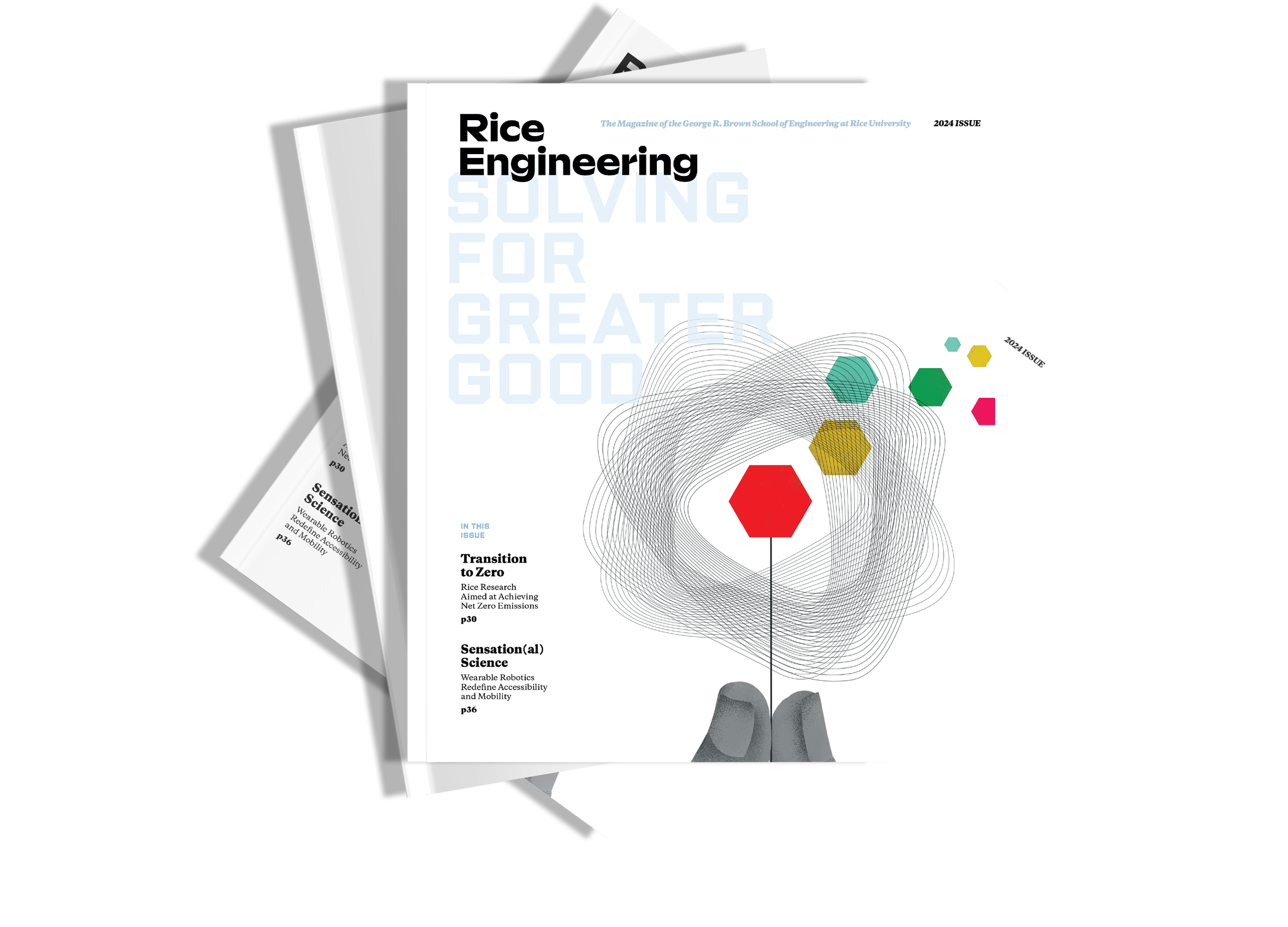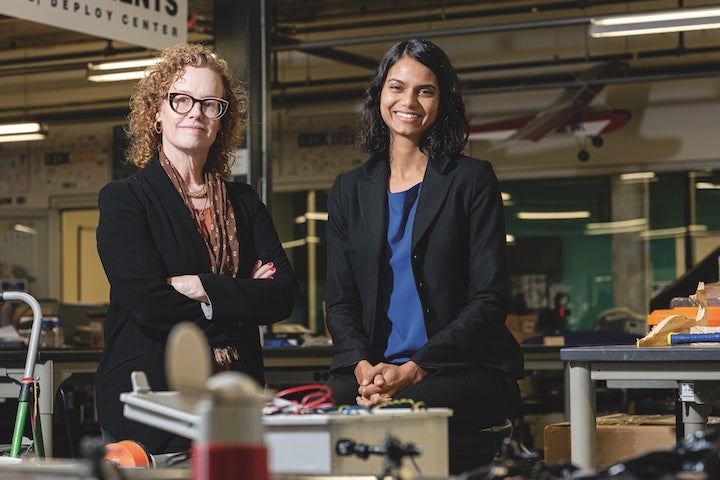
The spring 2024 issue of Rice Engineering Magazine is here!
At Rice Engineering, we are driven by a passion for innovation and a commitment to responsible engineering practices. It’s with great excitement that we unveil the new design of Rice Engineering magazine, which underscores our dedication to excellence in research, education, and service. The 2023-24 issue is full of news about how Rice Engineering is solving for greater good.
Placing People at the Heart of Medical Design
In addition to innovative research that extends healthcare affordability and efficiency on a broader scale, Rice is pioneering initiatives to instill equity considerations in engineering education.
A five-year grant from the National Institutes of Health (NIH) will support the development of an undergraduate bioengineering curriculum component intended to cultivate inclusive design principles for Rice University students contemplating a career as medical practitioners or medical technology innovators.

Sabia Abidi, an assistant teaching professor of bioengineering at Rice, and Kirsten Ostherr, Rice’s Gladys Louise Fox Professor of English and director of the Medical Humanities Research Institute, have won NIH support for a clinical immersion project that seeks to enhance Rice’s undergraduate bioengineering curriculum to further address inequities in health care delivery and account for the complex clinical settings in which medical devices are used.
In collaboration with the Texas Heart Institute and Texas Children’s Hospital, the new immersion program will enable Rice bioengineering juniors and seniors from diverse backgrounds to observe and interact with clinical settings in a pediatric intensive care unit and a cardiology and heart surgery center. In addition to clinical observation, the program will introduce students to key aspects of physiology, technology, communication, entrepreneurship and healthcare disparities that impact the development of medical technologies and devices to cultivate an inclusive, human-centered approach to medical design.
“We’re taking a very intentional approach to provide an educational experience that has the potential to transform the trajectory of the engineering design process from its earliest stages, leading to more effective solutions and better-trained bioengineering graduates,” Abidi said. “Through this project, our team hopes to get students thinking about what populations are not being served and how to make sure their needs are really being met.”
